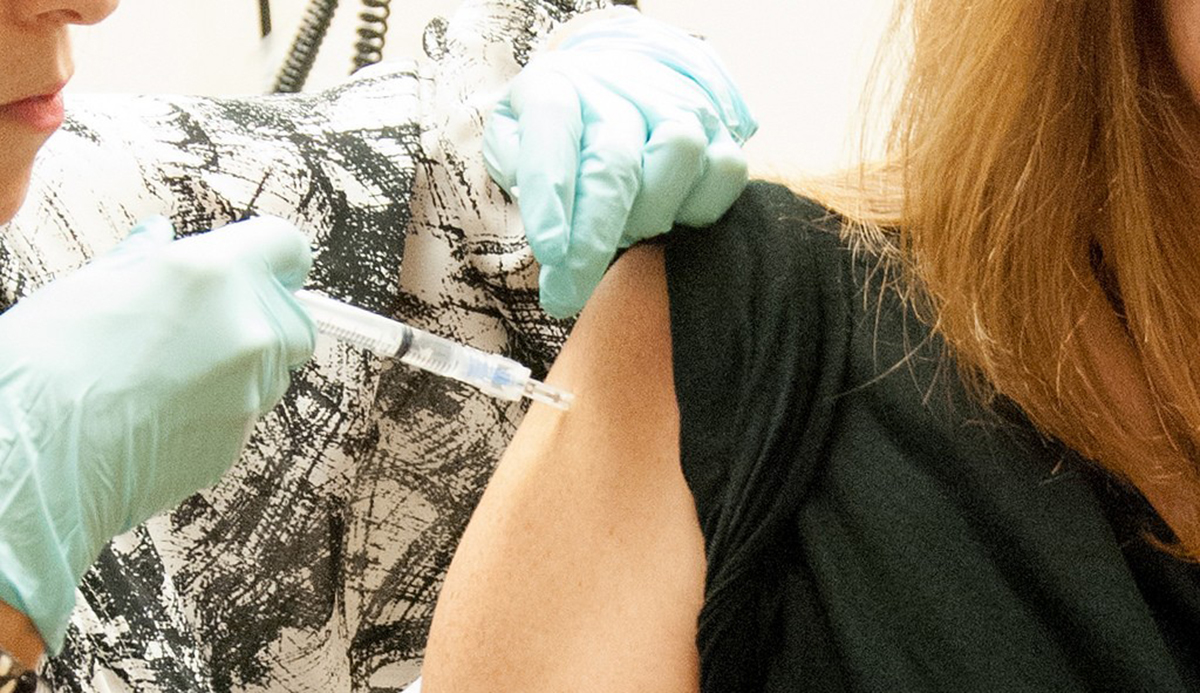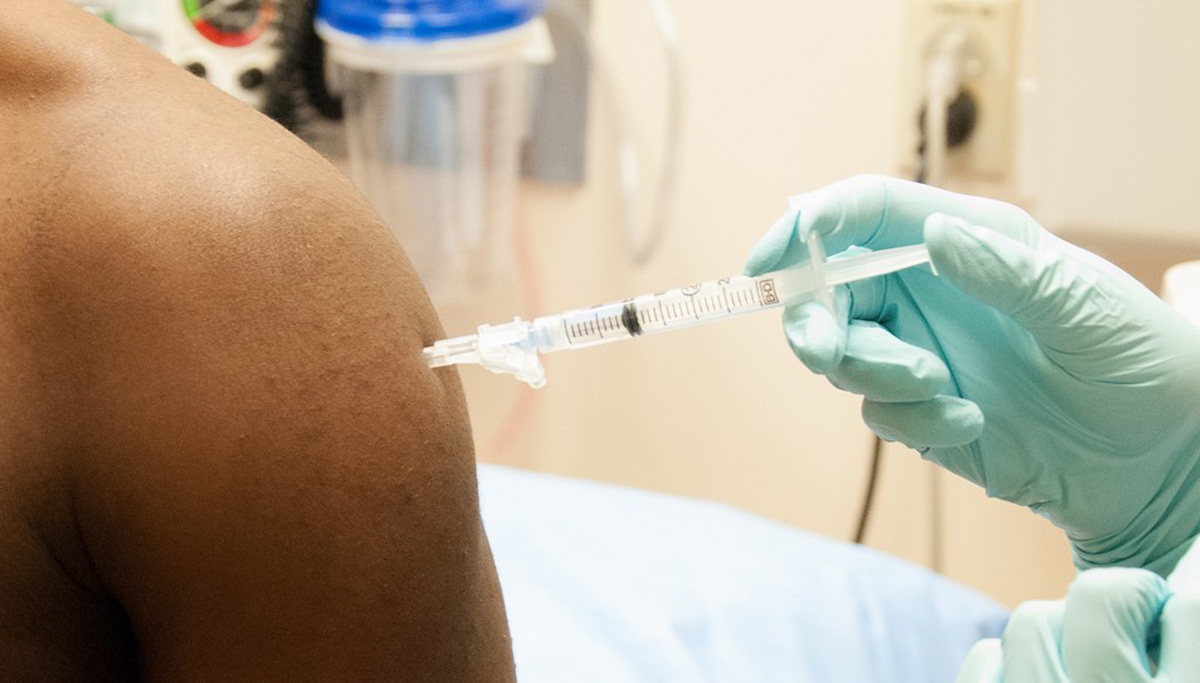The Ebola virus infection is an easily transmitted, highly infectious, and very deadly disease that has claimed the lives of close to 2,000 people. The virus has killed fewer than 3,000 people since it was identified only about 40 years ago, but it has everybody increasingly concerned because it can kill up to 90% of people who are infected. In the past, Ebola infections were controlled by isolating the infected patients in small settlements. Recently, however, a large outbreak has affected more people from East Africa, including those from Liberia, Sierra Leone, Nigeria, and Guinea. Furthermore, scientists still have to find out how infection can be prevented and how affected individuals can be cured from the disease.

Ebola Vaccine: Still Experimental
To protect uninfected individuals from Ebola virus infection, experimental vaccines are now being developed and tested for safety and effectiveness. Vaccines are drugs that can stimulate the body's immune system to build a response against viruses.
Clinical trials for the vaccine will involve healthy adults who have not been infected with the virus and will determine if the vaccine induces an effective immune response and is safe to use. The World Health Organization (WHO) has declared the Ebola epidemic an international health emergency and clinical trials using the vaccines will soon be underway. This is to ensure that the vaccines will be available for use by 2015.
One vaccine developed by the pharmaceutical GlaxoSmithKline has shown promising results when used on monkeys, and will be tested on a few human subjects (phase 1) in clinical trials to be conducted in Bethesda, Maryland. Although it usually takes years for drugs like vaccines to get final approval for marketing from the FDA due to its strict standards, exceptions may be made, especially when faced with a deadly disease that can spread like wildfire. Other vaccines that are being developed include those from the NewLink Genetics Corp and the Public Health Agency of Canada, and those supported by the National Institutes of Health (NIH).
One problem with developing a vaccine is marketing it, since Ebola infection tends to be sporadic and unpredictable, and therefore, doctors will have difficulty recommending it to populations who may not even be at risk. However, with the urgency of the current situation, the NIH has announced that clinical trials will be beginning soon.
See Also: US Citizen In Ghana Does Not Have Ebola
Antivirus Drug Looks Promising
Meanwhile, an experimental antivirus drug designed to treat already infected individuals has also been developed and is now being tested in monkeys. This drug is called ZMapp (by Mapp Biopharmaceutical Inc.) and it consists of three monoclonal antibodies that can neutralize the virus by binding to their protein and disrupting replication and/or destroying them. Results of studies using infected monkeys showed that treatment within 24 hours led to full recovery, but if treatment was delayed for several days, only half of the infected monkeys survived. No formal studies of human subjects have been done. Other experimental drugs that are still being developed include TMK-Ebola, favipiravir, AVI-7537, BCX-4430, estrogen receptor modulators, and ST-383.
Problems With Experimental Vaccines And Drugs For Ebola
There seems to be an urgent need to produce new vaccines and drugs to treat the current Ebola outbreak, which threatens the whole world. Experience has shown that a virus such as this can easily escape isolation methods, especially with the constant movement of people in train, planes and buses. Once thought as a rare disease, Ebola virus infection may suddenly become an uncontrolled epidemic of sorts, because science has not established a way to stop it.

The immediate goal for now would be to develop preventive vaccines and treatment drugs that can be stockpiled for use in case a widespread epidemic ensues. However, it is not easy to manufacture large amounts of vaccines or drugs, especially if the need is still limited to a few individuals or small communities. Zmapp, the antiviral serum, which is being produced by Kentucky BioProcessing, takes time to process, since it involves growing and infecting tobacco plants with a protein, which they copy and reproduce to become the usable drug. The compound was formulated in January 2014, and according to Mapp Biopharmaceuticals president Larry Zeitlin, PhD, they still have to publish a scientific paper and get approval for its use in humans. Aside from the relatively slow process of producing and testing drugs, ethical issues may be raised, too. For example, in 2009, during the swine flu (H1N1) pandemic, WHO rushed the marketing of a vaccine and was criticized for conflict of interest while working with drug companies that profited from the sales.
If the initial trials show that the vaccines are effective, then larger trials involving more people will have to be done. However, there may be a problem with this, according to infectious disease expert, Dr. William Schaffner, from Vanderbilt Medical Center, since it will be unethical to purposefully expose healthy people to the virus for testing purposes.
Current Status of Ebola Infection Management
For now, the most effective way to stop the current outbreak of Ebola virus is by doing meticulous work in finding active cases, isolating infected patients, and tracing potential contacts to stop the chains of virus transmission.
These measures have been used in previous Ebola outbreaks that have been successfully stopped.
See Also: Concerns About Ebola Virus Outbreak Rise
For people who have to travel to areas with known Ebola cases, these recommendations must be followed:
-
Practicing careful hygiene.
-
Avoiding contact with blood or other body fluids.
-
Avoiding contact with items that may have been contaminated with the blood/body fluids of an infected person.
-
Avoiding funerals/burial rituals that involve handling the body of an Ebola victim.
-
Avoiding contact with bats, primates, or their blood, fluids, or raw meat.
-
Avoiding hospitals where patients infected with Ebola are being treated.
-
Upon return, one must monitor their health and seek help immediately if symptoms of Ebola infection develop. These include high fever, abdominal pain, muscle pain, severe headache, vomiting and diarrhea.
- The Telegraph. Ebola vaccine won't be ready until 2015, says WHO. http://www.telegraph.co.uk/news/worldnews/africaandindianocean/liberia/11024010/Ebola-vaccine-wont-be-ready-until-2015-says-WHO.html
- WebMD. Experimental Ebola Serum Grown in Tobacco Leaves.http://www.webmd.com/news/20140804/ebola-virus-vaccine
- ABCNews. How an Ebola Vaccine Could Change the Next Deadly Outbreak.http://abcnews.go.com/Health/ebola-vaccine-change-deadly-outbreak/story?id=24825398
- CDC. Questions and Answers on Experimental Treatments and Vaccines for Ebola.http://www.cdc.gov/vhf/ebola/outbreaks/guinea/qa-experimental-treatments.html
- NY Times. Ebola Vaccine Possible, but Many Doubts Persist.http://www.nytimes.com/2014/08/02/health/effort-to-develop-ebola-vaccine-to-test-on-humans-is-put-on-fast-track.html
- MedicineNet. Ebola Vaccine: Is It Safe?http://www.medicinenet.com/ebola_vaccine_is_it_safe/views.htm
- CDC. Ebola (Ebola Virus Disease) Prevention.http://www.cdc.gov/vhf/ebola/prevention/index.html
- Photo courtesy of NIAID by Flickr : www.flickr.com/photos/niaid/15137998885
- Photo courtesy of NIAID by Flickr : www.flickr.com/photos/niaid/15138207362
- www.telegraph.co.uk
- www.webmd.com
- abcnews.go.com
- www.cdc.gov
- www.nytimes.com
- medicinenet.com


Your thoughts on this